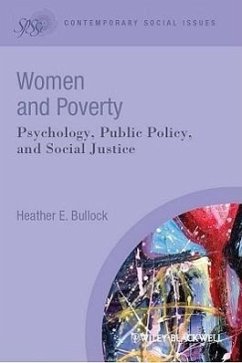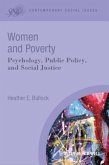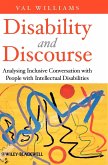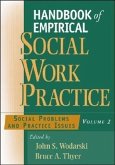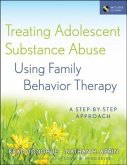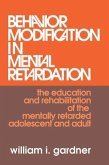Women and Poverty provides a social psychological analysis of social class and classism, particularly in relation to women's poverty. The book offers a critical analysis of the social and structural factors that contribute to poverty among women, class-based power relations, and the sociocultural beliefs that legitimize economic injustice. Core questions include: How do diverse socioeconomic groups perceive social class and prospects for upward mobility? How do low-income women view interclass relations, economic inequality, and the welfare system? How are poverty, and class privilege and disadvantage explained and understood? How do sexist, racist, and classist attitudes and beliefs contribute to the hardships low-income women confront? How are these beliefs related to current welfare and other social and economic policies? What structural, social, and cultural changes would reduce poverty? To address these questions, Women and Poverty brings together research and theory from social psychology, policy studies, and critical and feminist scholarship. The synthesis and application of these perspectives to women's poverty is one of the key features of this book, providing readers with a multifaceted appreciation of the underlying causes of poverty and the policies that promote economic justice. Positioning classism as a pervasive source of inequity, women's experiences of poverty and class-based discrimination are examined at the individual, intergroup, and institutional levels.
Hinweis: Dieser Artikel kann nur an eine deutsche Lieferadresse ausgeliefert werden.
Hinweis: Dieser Artikel kann nur an eine deutsche Lieferadresse ausgeliefert werden.
Bullock shines the light of her clear and bold analyses on suchissues as discrimination, unpaid labor for motherhood andcaregiving, labor market wage disparities, unaffordable housing,and violence. She examines the relationship between negativeattitudes and beliefs about poor women and demeaning socialpolicies. A "must" for social and communitypsychologists, clinical and educational psychologists, and allother professionals and students who take seriously the mission ofadvancing human health and welfare.
--Dr Bernice Lott, Department of Psychology, The Universityof Rhode Island
With her book Women and Poverty, Heather Bullockcontinues her groundbreaking illumination of poverty and classismfrom a psychological perspective. Bringing her focus to thegendered construction of poverty, Bullock's compellingexamination manages to be both expansive and particular - itencompasses the broad sociocultural trends and biases thatperpetuate women's poverty, but also renders comprehensiblethe fluctuations and implications of recent welfare policies.Scholarly, passionate, and forceful, this book is a must-haveresource for psychologists, educators, social serviceprofessionals, and policy-makers whose work interfaces with issuesof social class and social justice.
--Professor Laura Smith, Department of Counseling andClinical Psychology, Teachers College, ColumbiaUniversity
In a time of obscene economic inequality, HeatherBullock's Women and Poverty: Psychology, Public Policy andSocial Justice is essential reading. Scholarly and passionate,this book reveals the ways in which poverty is gendered,illuminates the costs of poverty to women and to our entiresociety, and gives us the tools to challenge class bias and advancejust social policies.
--Professor Deborah Belle, Department of Psychology, BostonUniversity
--Dr Bernice Lott, Department of Psychology, The Universityof Rhode Island
With her book Women and Poverty, Heather Bullockcontinues her groundbreaking illumination of poverty and classismfrom a psychological perspective. Bringing her focus to thegendered construction of poverty, Bullock's compellingexamination manages to be both expansive and particular - itencompasses the broad sociocultural trends and biases thatperpetuate women's poverty, but also renders comprehensiblethe fluctuations and implications of recent welfare policies.Scholarly, passionate, and forceful, this book is a must-haveresource for psychologists, educators, social serviceprofessionals, and policy-makers whose work interfaces with issuesof social class and social justice.
--Professor Laura Smith, Department of Counseling andClinical Psychology, Teachers College, ColumbiaUniversity
In a time of obscene economic inequality, HeatherBullock's Women and Poverty: Psychology, Public Policy andSocial Justice is essential reading. Scholarly and passionate,this book reveals the ways in which poverty is gendered,illuminates the costs of poverty to women and to our entiresociety, and gives us the tools to challenge class bias and advancejust social policies.
--Professor Deborah Belle, Department of Psychology, BostonUniversity

